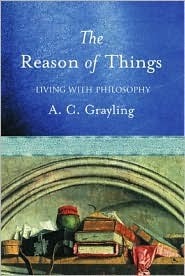What do you think?
Rate this book


320 pages, Hardcover
First published January 1, 2001
"The abstract properties of collections of things would be impossible to investigate without the simple but immensely powerful symbolic notation of arithmetic. The Romans did not have a symbol for nothing (zero), and were so hampered by the lack that they were incapable of contributing to mathematical knowledge."
"Symbols have the unfortunate power to acquire the importance of what they symbolise. They become objects of veneration or hatred in their own right, and it becomes a sin (or, for enemies, a virtue) to mistreat them....The very concept of 'desecration' - of mishandling or disrespectfully treating a symbolically important object or place - depends crucially on the power of symbols to share the reality of what they symbolise.
Worst of all, symbols sometimes live on in their own right when what they symbolise has long been forgotten. It is an intriguing and dismaying parlour game to itemise the symbols that have become their own reality, and to count how many there are; for people not only live by symbols, but die by them, as wars of religion and nationalism attest."